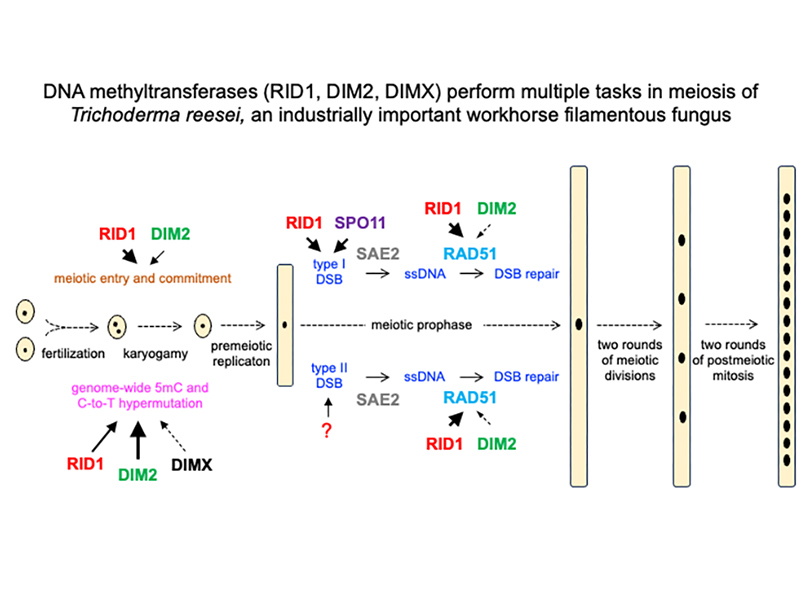DNA cytosine methyltransferases differentially regulate genome-wide hypermutation and interhomolog recombination in Trichoderma reesei meiosis
Dr. Wang, Ting-Fang - July, 2024
Trichoderma is a group of fungi commonly used for industrial enzyme and biofuel production, food manufacturing, agricultural biocontrol and biofertilizers. Trichoderma species exist as filamentous hyphae and are widely distributed in soil, air, various waters, and plant debris. Their most notable features are high genetic diversity and strong environmental adaptability. Another common characteristic is that they are usually male or female sterile, making sexual reproduction difficult or impossible and therefore can only reproduce asexually through vegetative growth. This paper reports that the DNA cytosine methyltransferases of Trichoderma reesei have multiple functions in meiosis, including driving meiotic initiation, promoting DNA recombination between parental homologous chromosomes, and using a specialized epigenetic mechanism to induce genome-wide DNA methylation and cytosine(C)-to-thymine(T) hypermutation, ultimately leading to rapid and massive increases in genome diversity. Ultra-high genomic diversity is like a double-edged sword. Sometimes it can effectively promote the environmental adaptability of offsprings, but more often it will lead to genome instability, resulting in the inability of sexual spores to germinate or grow vegetatively. Our results suggest that wild Trichoderma species with female or male sterility may maintain genome stability and survival advantages due to sexual dysfunction.
